18 Dec2017
By Kristin McCabe
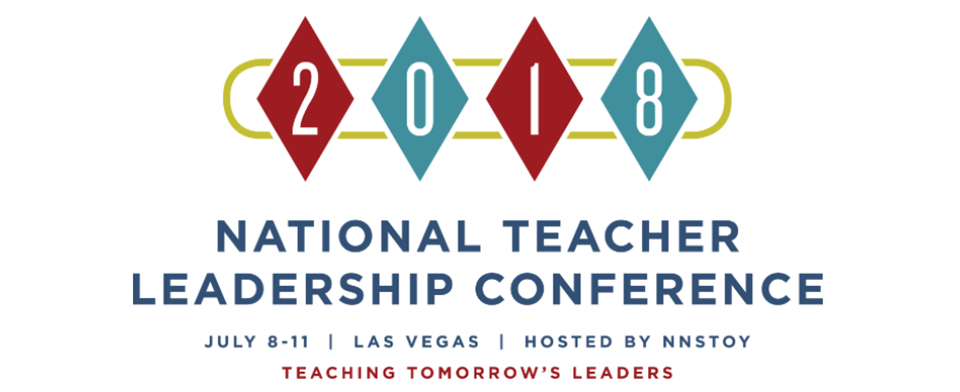
The National Network of State Teachers of the Year (NNSTOY) requests proposals for workshops and other interactive sessions to be presented at its 2018 National Teacher Leadership Conference, July 8-11 in Las Vegas, Nevada. Proposals are due by February 5.
The 4-day conference will convene state and national teachers of the year (and finalists from the states) to “engage with national education leaders, administrators, policy makers, the business community, and colleagues to dynamically teach and learn in order to impact students, schools, and the profession.” Themed Teaching Tomorrow’s Leaders, the conference will offer sessions focused on four urgent problems of practice identified through a membership survey by NNSTOY:
13 Oct2017
By Ron Avi Astor

Did you know that October is National Bullying Prevention Month? AACTE member professor Ron Avi Astor, who holds joint appointments in the schools of social work and education at the University of Southern California, has two new books out this fall addressing bullying prevention and creating welcoming schools for vulnerable groups, and he prepared the following article to share some of his research and resources with Ed Prep Matters readers. The views expressed in this post do not necessarily reflect the views of AACTE.
Preparing our nation’s teachers, principals, superintendents, and pupil personnel to create safe, welcoming, and supportive schools has become a high priority for colleges and universities. PK-12 schools have the power to prevent students from becoming bullies and to prevent victims from becoming bullies or being further victimized. Organizations such as the American Educational Research Association and the National Academy of Sciences have put forth research summaries and materials for universities to use with this aim in mind. In addition, many states are now actively working with organizations such as the Collaborative for Academic, Social, and Emotional Learning to better implement social and emotional learning (SEL), positive school climate, and bullying prevention into schools and to consider ways to measure these areas as part of their state student surveys and accountability systems. (See list below for useful resource links.)
12 Jun2017
By Kevin Graziano, Teresa Foulger, Denise Schmidt-Crawford and David Slykhuis
The views expressed in this post do not necessarily reflect the views of AACTE.
To help educator preparation programs address calls for better preparing new teachers to integrate technology in their practice, we recently led a collaborative research effort to develop a set of teacher educator technology competencies. An article outlining the competencies and our underlying methodologies is currently in review for publication, and we look forward to disseminating the details soon – but for now, we’d like to share some background on what spurred the project and how we decided to approach it.
21 Mar2017
By Sharon Brennan
The views expressed in this post do not necessarily reflect the views of AACTE.
Classrooms today are more diverse than ever. Students come with a wide array of learning modalities, interests, and life experiences and represent increasingly varied socioeconomic, religious, and cultural backgrounds. As of 2014, according to the National Center for Education Statistics, “minorities” now constitute the majority of PK-12 students in U.S. public schools, and more than 10% of students are considered English language learners (ELLs). How can we better prepare our candidates to “reach and teach” all children in today’s schools?
06 Dec2016
By Daina Lujan, Eurania Isabel Lopez, Judith Munter and Timothy Weekes
California, like many states in the nation, faces a critical shortage of teachers. As California recovers from the Great Recession, teacher hiring needs have steadily increased from a recent low of 10,360 in 2011-2012 to 21,482 in 2015-2016. During the same period, the number of new credentials issued has decreased to a low of fewer than 14,000 candidates in the 2014-2015 school year. This reduction in productivity is reflective of the downward trend in enrollment in teacher preparation programs.
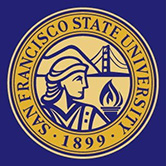
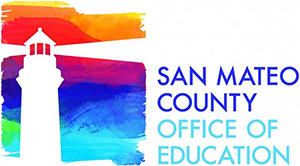
08 Nov2016
By Kristin McCabe
Did you miss AACTE’s webinar last month on what teacher candidates need to know about the intersection of educator dispositions, ethics, and law? Don’t worry – you can watch the recording at your convenience in AACTE’s Resource Library. You’ll find it, along with the presentation slides, here.

David Thompson, University of Texas – San Antonio
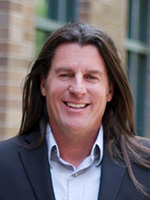
Troy Hutchings, Educational Testing Service
Presenters David Thompson of the University of Texas at San Antonio and Troy Hutchings of the Educational Testing Service opened their presentation with a case study that illustrated the complexity of factors at play not only in teacher-student relationships, but also in teacher-supervisor and other adult interactions. They discussed different frameworks that can guide teachers’ decision making and how teachers might reconcile conflicts between these frameworks to “navigate the gray areas.”
11 Oct2016
By Kristin McCabe
AACTE will host an interactive webinar next week discussing the intersection of educator dispositions, ethics, and law—and how teacher educators can assist their candidates in navigating the broad range of gray areas that they will face as professionals. Please join us!
Beyond the Obvious: The Intersection of Educator Dispositions, Ethics, and Law
09 Jun2016
By Amanda Lester
AACTE is excited to announce the launch of a new webinar series on clinical practice beginning this month. Kicking off Thursday, June 16, 11:00 a.m.-12:00 p.m. EDT, the series will highlight examples of AACTE members’ clinical programs and partnerships and will provide updates on the work and progress of AACTE’s Clinical Practice Commission (CPC), which plans to release a white paper in early 2017.
The inaugural webinar, “Building the Pathway From Theory to Practice: The AACTE Clinical Practice Commission” will feature members of the CPC presenting an overview of their work during the past year. Learn about the commission’s efforts to establish a clearly defined pathway between the research and theory supporting clinical teacher preparation in order to operationalize and support best practice in the field. The overview will include–
17 May2016
By Gail Bozeman
Several members of AACTE’s Member Engagement team attended the U.S. Department of Education’s May 6 National Summit on Teacher Diversity. The event, held at the conclusion of Teacher Appreciation Week, provided a forum to examine the need for a more diverse teaching workforce and to share best practices for recruiting, supporting, and retaining teachers of color.
Secretary of Education John B. King, Jr., offered opening remarks about the importance of diversifying the educator pipeline. “Students of color would benefit from having more educators and role models who look like them,” he said. “And White students would benefit from seeing more people of color in leadership positions in their schools.”
12 Jan2016
By Glen Bull and Kevin Graziano
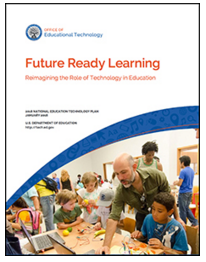
Last month, the U.S. Department of Education Office of Educational Technology released the 2016 National Educational Technology Plan, titled Future Ready Learning: Reimagining the Role of Technology in Education. Billed as the nation’s “flagship educational technology policy document,” the plan contains specific recommendations for teacher preparation programs relative to its “vision of equity, active use, and collaborative leadership to make everywhere-all-the-time learning possible.” For this article, AACTE asked two of our field’s leaders on the topic to reflect on the plan and its relevance for educator preparation providers.
Since 2000, the AACTE Committee on Innovation and Technology has hosted an annual leadership summit for the presidents of a dozen teacher educator associations and editors of educational technology journals, who together comprise the National Technology Leadership Coalition. This summit in Washington, DC, provides a unique forum for interdisciplinary planning focused on technology and teacher preparation. Sharon Robinson, president and CEO of AACTE, recently wrote of the coalition, “Rather than reacting to new technologies, members of [the coalition] sought to shape them by partnering with developers to include discipline-specific pedagogical considerations.”
04 Aug2015
By Jerrica Thurman

AACTE is undertaking a new effort to strengthen its Innovation Exchange by developing better navigation tools, adding fresh resources, and boosting engagement opportunities for the professional community.
“The Innovation Exchange must be an interactive platform for bringing together and amplifying the innovative work our members do,” said Rodrick Lucero, vice president of member engagement and support.
06 Jul2015
By Sharon Robinson
As another ambitious teacher preparation innovation captures national attention, I invite you to join me in taking stock of how widespread creative change has become in this field. The Woodrow Wilson National Fellowship Foundation and the Massachusetts Institute of Technology recently announced the launch of their brand-new research laboratory and graduate program to prepare teachers and school leaders. The educator preparation field, already rife with innovation, welcomes the new Woodrow Wilson Academy of Teaching and Learning as the latest partner in a robust entrepreneurial environment.
While I do not embrace the negative rhetoric that accompanied the new program’s announcement, I am keenly interested in the work. In fact, the Academy’s goals are quite aligned with those being addressed by many other educator preparation providers and organizations. Foundation President Arthur Levine and his partners at MIT will find themselves in good company as they pursue their particular reform interests and share their findings.
30 Jun2015
By Kristin McCabe and Omar Davis

A new ethics framework from the National Association of State Directors of Teacher Education and Certification (NASDTEC) aims to guide PK-12 educators in their decision making—and assist their preparation programs in nurturing their ability to make ethical decisions. NASDTEC unveiled the Model Code of Ethics for Educators at a press conference June 25 in Washington, DC.
The code was developed over the past year in a joint effort with Educational Testing Service, the University of Phoenix, and the National Association of State Teachers of the Year. Once the draft was ready, a public comment period last winter provided feedback before the language was finalized. NASDTEC considers the result to be a fluid document that will continue to adjust to conditions in the field. Its board even created a new National Council for the Advancement of Educator Ethics to oversee modifications to the framework on an ongoing basis, and comments are still welcome on the document.
23 Jun2015
By Kristin McCabe
A new partnership between the Woodrow Wilson Foundation and the Massachusetts Institute of Technology (MIT) launched last week to “transform policy and practice” in educator preparation. Announced June 16, the new Woodrow Wilson Academy of Teaching and Learning will be a graduate school of education based at MIT that conducts research and offers competency-based master’s programs in teaching and school leadership.
Foundation President Arthur Levine, former president of Teachers College at Columbia University (NY), touted the academy’s plan to “throw out the clock”—focusing on its students’ mastery of competencies rather than on credit hours—and to produce open-source course modules for ease of replication nationwide.
16 Jun2015
By Raquel Carrilho
On Wednesday, June 17, the Education Policy Center (EPC) at the American Institutes for Research will host a Twitter chat, “Preparing a Million New Teachers,” to discuss whether educator preparation programs are up to the challenge of producing a well-prepared workforce. You can lend your voice to the chat by following and tagging #EPCchat on Twitter, starting tomorrow at 8:00 p.m. EDT.















